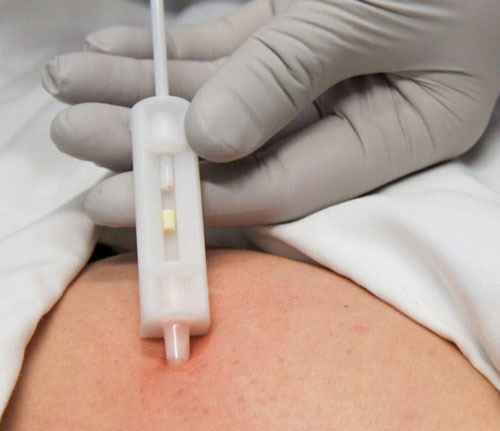What is Biodentical Hormone Pellet Therapy?
Customized to meet your individual needs, pellets are compounded hormones made from organic plant materials, which have the same molecular structure of those hormones found in the body. In a simple, quick in-office procedure, Dr. White inserts a prescribed number of rice-grain-sized bioidentical hormone pellets under the skin near the hip. These pellets will release steady small amounts of hormone(s) directly into your bloodstream for an average of several months.
What are the benefits of hormone pellet therapy?
Considered the gold standard of hormonal therapy treatments, bioidentical hormone pellets are used to treat men and women with low hormone levels. They have the same molecular structure as natural human hormones and work the same way. Delivering these medications in pellet form has several benefits:
- Consistency — Pellets supply a consistent level of hormones released in the bloodstream.
- Closest to nature — Pellets mimic your body’s natural delivery system more closely than any other method.
- Convenience — You don’t need to worry about remembering to take your medication daily. Hormone pellets only need to be inserted 2-4 times per year depending on what your physician prescribes and what works best for your body.
- Fewer side effects — Pellet therapy bypasses the liver, sending hormones directly into the bloodstream, and avoiding certain side effects of oral medications.
What can bioidentical hormone pellets treat?
Menopause
The most common use of BHRT is to treat the symptoms of menopause in women. These symptoms can include hot flashes, night sweats, vaginal dryness, sleep problems, fatigue, mid-section weight gain, loss of muscle mass, foggy thinking, and mood changes.
Low Testosterone
Levels of testosterone normally decline with age. Some people have no symptoms, but it can cause men and women to experience low libido, sexual problems, hair loss, fatigue, loss of muscle and bone mass, fat gain (think beer belly for men), mood issues and memory problems.
Loss of Bone Density
Postmenopausal osteoporosis affects women during the first decade following menopause. Bones become brittle, fragile, and easy to fracture. This is one of the most common postmenopausal problems doctors treat with bioidentical hormone pellet therapy.
Sexual Dysfunction
BHRT may help with vaginal dryness in women, decreased libido in both sexes, and sexual functioning issues in men.
Muscle and Strength Loss
Men and women can lose muscle mass and strength as hormone levels decrease. Hormone replacement may help patients continue enjoying their favorite sports, activities and improve their overall quality of life.
Mood Disorders
Hormonal changes in menopause or andropause (in men) can cause or worsen mood swings, anxiety disorders, or depression. In addition to worry, fear, agitation, irritability, nervousness, and irrational thoughts, patients can have physical symptoms — rapid heart rate, shortness of breath, nausea, numbness, lightheadedness, shakiness, and high blood pressure.
Who can benefit from hormone pellet therapy?
Pellet hormone therapy may benefit people who have symptoms of hormone imbalance related to age or other factors. In addition to serious medical conditions, as hormone levels decline, both men and women can feel less like “themselves” than when they were younger. They may not have the strength or energy they once had, sex may be difficult or uncomfortable, they may gain or lose weight, and they may be more sensitive to heat and cold. All kinds of things can change, from hair to memory loss, when the body isn’t producing its optimal level of hormones.
Who should avoid hormone pellet therapy?
Based on a patient’s medical history and lifestyle, hormone replacement therapy has the potential for risks and side effects which can vary from person to person. You should always consult carefully with Dr. White about the potential pros and cons for you. Some issues may be better or worse with pellet delivery than oral or cream delivery. Make sure Dr. White knows if you:
- Think you may be pregnant
- Are experiencing vaginal bleeding
- Have/had certain types of cancer such as breast, uterine, or endometrial
- Had a stroke or heart attack
- Have/had blood clots
- Develop a minor local reaction to the implant, such as itching and redness
- See the pellets dislodging and coming out of the skin

